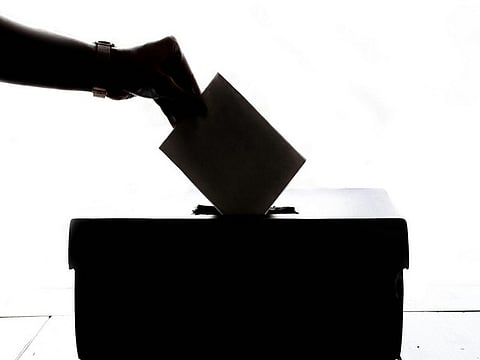

THIRUVANANTHAPURAM: The Palakkad by-election may be just a day old, but political pundits are trying to decipher how the small yet influential Christian community in the constituency voted, especially against the backdrop of the Munambam land issue.
Although there are many churches and educational institutions run by various denominations in the district, the 2011 census counted an insubstantial 5,648, or 3.2%, Christian voters in the district. According to the Catholic Church, Christian voters in the constituency would currently number around 6,500-7,000.
The Syro-Malabar Church faithful is the largest denominational bloc in the assembly segment and the district, followed by Roman Catholics, Syro-Malankara Christians, Latin Catholics, Jacobites, the Syrian Orthodox community, CSI and Pentecostal Christians. According to the local diocese, the Syro-Malabar Church has 14,250 families with 58,521 individuals.
The Catholic Congress, the official lay organisation of the Syro-Malabar Church, has been one of the lead instigators of protests on the Munambam issue in Palakkad and other districts. It observed November 10 as Munambam Solidarity Day. As part of its agitation, the body also organised a sit-in before the Palakkad collectorate.
“Many community members have told us that for the first time in their lives they voted against the Congress and the CPM,” general secretary of Catholic Congress Joskutty J Ozhukayil said. “For many believers, the Munambam issue has taken on emotional overtones.
The Congress can no longer take the Christian vote for granted. Some community members have openly declared their stand. But, that doesn’t mean that all members have jumped ship,” he told TNIE.
Throughout the campaign, while the Congress and the CPM were conspicuously silent on the protests by Munambam residents against the Waqf Board’s claim over their land, the BJP backed the protesters and campaigned against the alleged double standards of the two fronts.
The saffron party’s Minority Morcha campaigned in the Christian areas, concentrating on parishes. Members also visited the various diocesan heads and homes of community members. The party employed the Waqf (Amendment) Bill, which seeks to curtail the powers of the Waqf Board, as its trump card.
According to Syro-Malabar authorities, members are critical of the way the Munambam issue has been handled. “The Church has not taken a position in favour or against any of the fronts,” Palakkad diocese spokesperson Fr Joby Kachappilly said. “However, the sentiment among the people is strong. Munambam has become a question of survival. We asked all the major fronts what they could do to diffuse the situation,” he said.
The Church is not happy with the way the state assembly passed a resolution urging the central government not to come up with an amendment to the Waqf Act without consulting it. “The CPM and Congress did not take a position based on facts,” Joskutty said. “Now, the government is even trying to identify land to substitute Waqf Board’s claims. This would amount to conceding that Munambam land is waqf property,” he added.